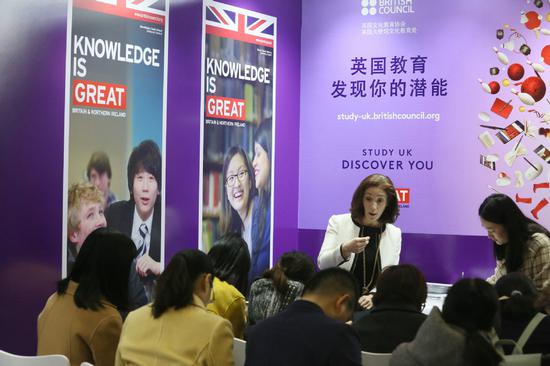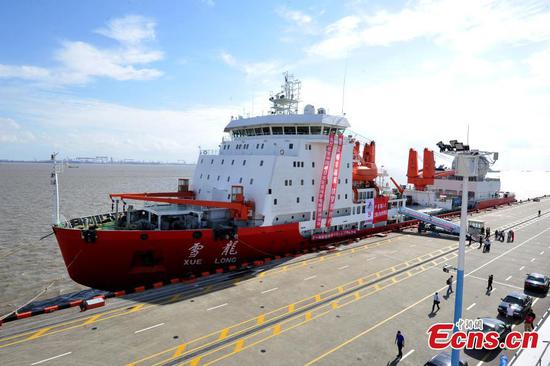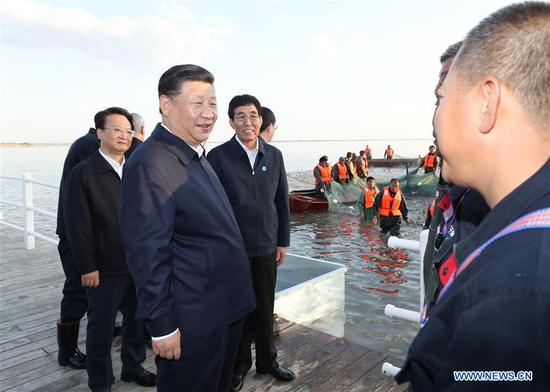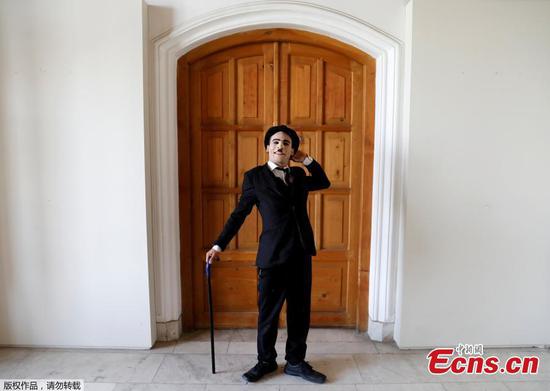
A British Council employee talks about studying in the United Kingdom at an international education fair in Beijing on March 25, 2017. (Photo by A Jing/for China Daily)
More and more high net worth individuals are sending their children abroad to study, despite the hefty price tag that comes with an international education.
"The past few years have seen a surge in the number of people studying abroad," said Huang Zhongyang, CEO of Special A, a Beijing-based institution specializing in overseas education consulting.
"Last year, 608,400 students went abroad to study, up 11.74 percent year-on-year. The market is huge," according to Huang.
He said "almost 100 percent of our clients are high net worth individuals, given that sending children to study abroad means a large amount of money, especially for those who send their kids from high school onward."
"Undergraduate study abroad costs about 2.5 million yuan ($366,000), while high school education costs even more, considering the expenditure on a nanny, research fees and donations that are required by many high schools," Huang said.
To get their children into the best schools, parents often spend significant amounts of money on tutoring as well.
"Generally, tutoring fees total 200,000 yuan. For some high-end institutions, the cost is as high as 600,000 yuan," according to Huang.
A report released by CreditEase Wealth Management and Beijing-based market research company HCR showed that up to 70 percent of interviewed high net worth individuals are either in the process of or have already sent their children abroad to study.
"High net worth individuals want their children to develop independent thinking, expanded vision and fluent language skills through studying abroad," said Zhang Yue, senior vice-president at CreditEase. "The rewards of investment in education are more important than the inheritance of any tangible wealth."
"Many wealthy people believe that studying abroad - in the United States, for instance - can cultivate children's multidimensional thinking and leadership abilities," Huang said.
"Other reasons include improving their children's social circles, fostering their independent living skills and experiencing multinational cultures, which is beneficial to cultivating their way of thinking," he said.
But, students could encounter many difficulties when studying abroad, such as not being able to adapt to the new environment, as well as language barriers, Huang said.


















































